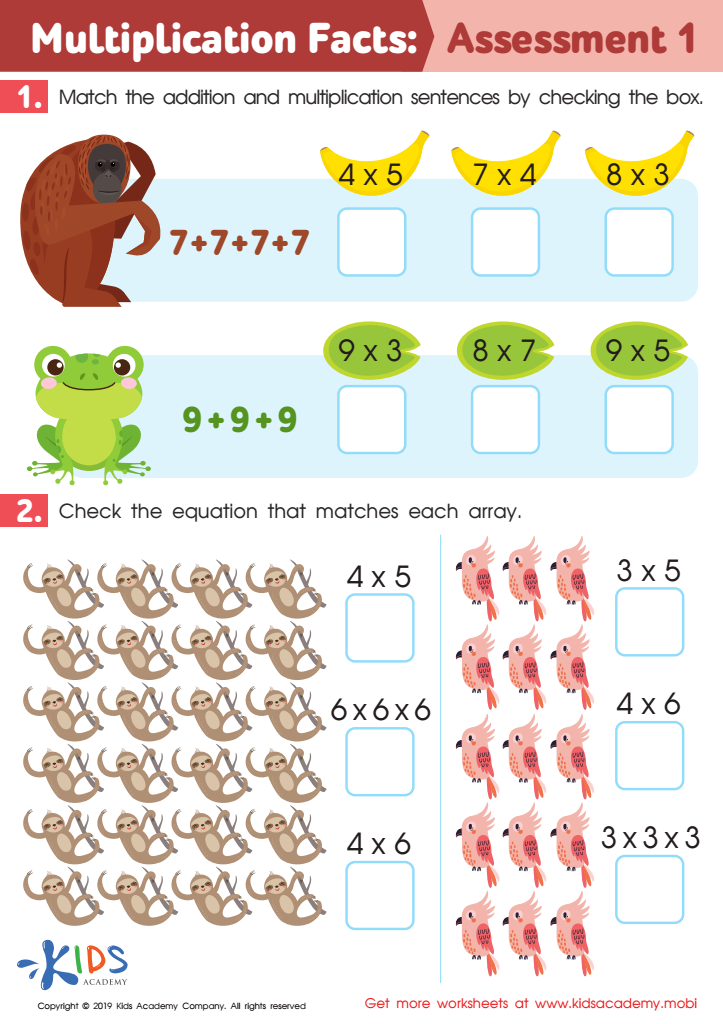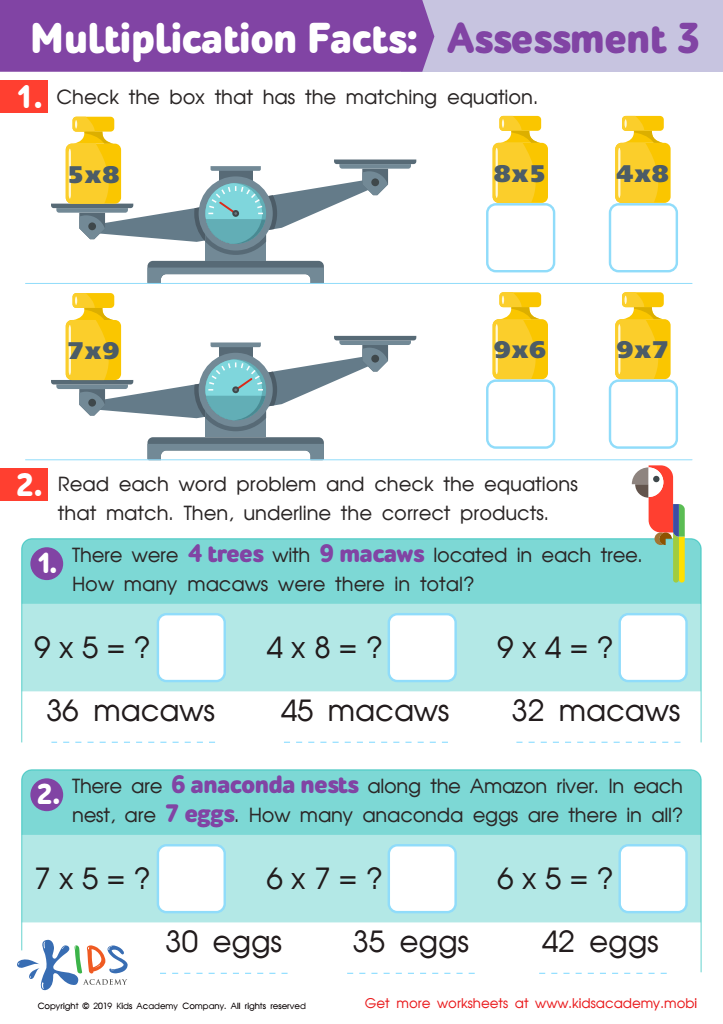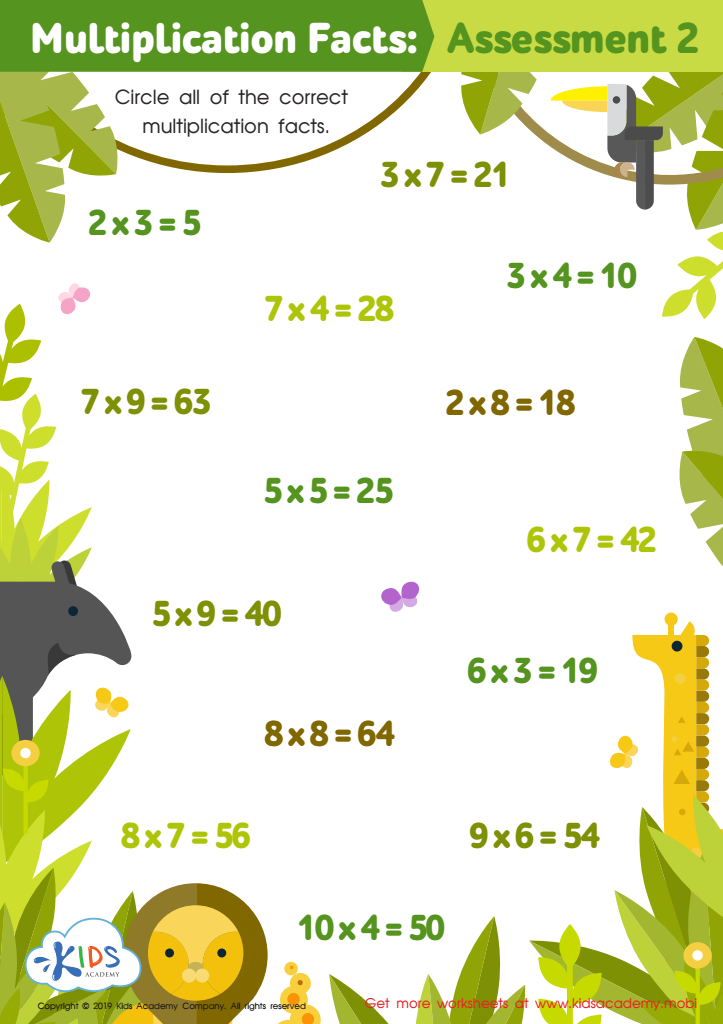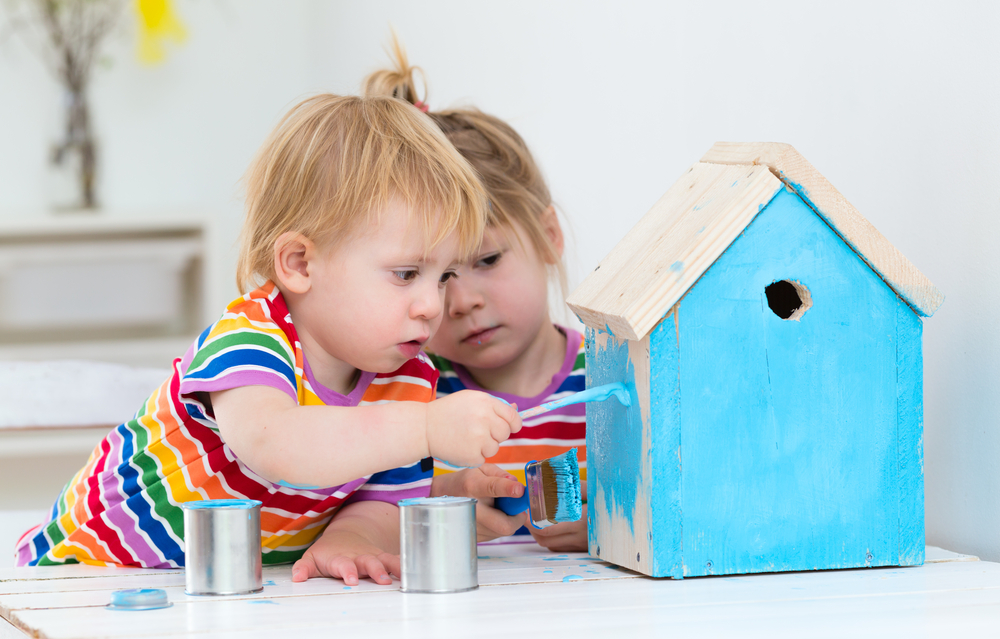Multiplication Worksheets Activities With Answers for Ages 4-8
3 filtered results
Difficulty Level
Grade
Age
-
From - To
Subject
Activity
Standards
Favorites
With answer key
Interactive


Multiplication Facts: Assessment 1 Worksheet
Teach your kids math with diligence, patience and practice. This colorful worksheet helps by matching addition and multiplication sentences, then checking the equation that matches each array. Perfect for kids having difficulty or to give extra practice. Help your little ones master mathematics with this printout.
Multiplication Facts: Assessment 1 Worksheet
Worksheet


Multiplication Facts: Assessment 3 Worksheet
Test your kid's maths skills with this easy to use worksheet! Help them check the box that matches the equation in the first part, then read each word problem and underline the right answers to the second part. Assess your child's muliplication knowledge and find out where they need extra help.
Multiplication Facts: Assessment 3 Worksheet
Worksheet


Multiplication Facts: Assessment 2 Worksheet
Engage your students with this fun and simple multiplication worksheet! It will help them practice and get better at solving figures correctly. Look at the problems in the picture and have them circle all the correct multiplication facts. It's a great way to introduce new rules and formats and make multiplication more enjoyable.
Multiplication Facts: Assessment 2 Worksheet
Worksheet

 Assign to the classroom
Assign to the classroom












